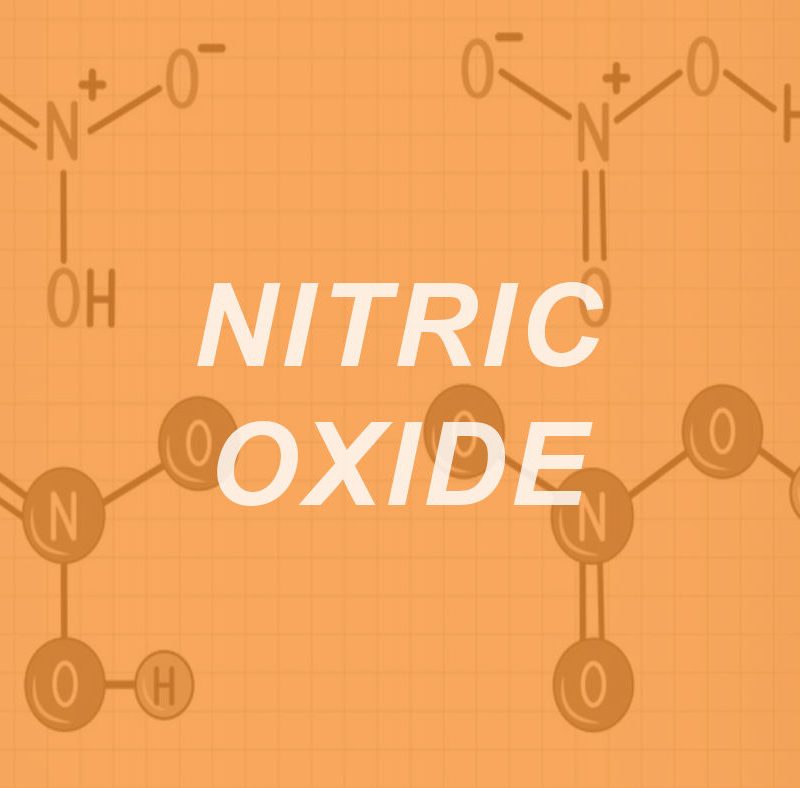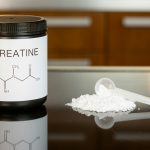
Though the exact method remains somewhat unclear, dietary nitrate (a source of nitric oxide or NO) appears to improve the contractile properties of human muscle. Find out how athletes utilize this supplement to enhance performance!
Boosting Blood Flow
The nitrate-nitrite-nitric oxide pathway, fueled by food sources of nitrate and nitrite, reflects the largely accepted benefits of good nutrition, especially the consumption of leafy vegetables.
Recent studies have examined the effects of dietary nitrate as a significant source of nitric oxide (NO) in the body, especially important for individuals living with cardiovascular disease. Research initially focused on the vasodilation properties of NO and its effects on blood pressure. In 2007, however, Larsen et al. reported that ingestion of NO3− at a dose of 100 μmol·kg−1 per day for three days lowered the steady-state rate of O2 uptake (V˙O2) during submaximal exercise. Dietary NO3− also has been shown to enhance blood flow to the muscles during exercise. Data points indicate that fast-twitch muscle tissue shows the greatest relative increase in blood flow.
Nitric Oxide and Performance
More recently, dietary NO3− has drawn a lot of attention with its ability to enhance the contractile properties of skeletal muscle tissue, including speed and power. According to an article appearing in the Sports Journal, studies have shown that taking nitric oxide supplements may enhance one’s tolerance to exercise. This behavior manifests itself across a broad range of individuals: both well-seasoned and untrained athletes, older individuals, and those who have experienced past heart failure.
Scientists postulate that changes in calcium signaling, responding to the increased availability of NO in the bloodstream, bring about this shift. In clinical trials, physicians see promise in patients with cardiovascular diseases whose bodies struggle with the ability to transport oxygen to working tissues, thereby mitigating their reduced exercise tolerance.
The Virtues of The Beet
Nutritional sources such as beetroot, beetroot juice and dark green leafy vegetables top the list in terms of providing exogenous nitrate. When the body transforms this into nitrite and potentially nitric oxide, vasodilation as well as mitochondrial biogenesis occur. Utilizing a similar yet slightly different pathway in the body, L-arginine too stimulates nitric oxide synthesis in the endothelium. Such findings have led athletes to focus upon both L-arginine and NO as natural sources of performance-enhancing supplementation. Further studies may elucidate the risks and benefits of supplementation as high as 1 gram/day of nitrate, focusing particularly on any detrimental effects to the nephrology system.
Good For Some, Not For All
Doctors have noted that taking nitric oxide supplements could exacerbate some pre-existing conditions, including kidney disease and the typical health concerns following a heart attack. A 2006 study published in the prestigious Journal of the American Medical Association found that patients taking L-arginine after having experienced a heart attack rendered them more vulnerable to the chance of a second incident and/or death than those individuals not taking this supplement.
Dietary or environmental exposure to nitrate has historically been viewed as harmful to our health, most specifically pointing to a predilection toward gastric cancer. Nitrate and nitrite in and of themselves do not present as carcinogenic. However, under conditions that result in endogenous “nitrosation”, a term referring to reactions introducing an NO group into an organic molecule, the possibility does exist where ingested nitrate and nitrite may lead to increased cancer risk in humans.
No More Lunch Meat?
Admittedly, questions and debates abound on this topic; more in-depth research may eventually elucidate a reliable benefit/risk assessment in terms of long-term health. Some of the epidemiological studies to date reveal somewhat of an association between cancer and nitrate-laden cured and processed meats. Once again, this connection needs more research, given that such a low risk seems almost negligible when compared to the virtues of dietary nitrite/nitrate.
The Inflammatory Response
While the presence of nitric oxide in the body confers certain benefits on host defense and homeostasis, scientists and athletes must not discount the knowledge that NO often finds itself implicated in many inflammatory and autoimmune diseases. A study on patients with periodontal disease indicated that low concentrations of basally produced nitric oxide can offer homeostatic protection in certain tissues. However, NO in excessive amounts causes an inflammatory reaction that may destroy host tissues. As a result, medical professionals may opt to assess serum levels of NO as an indicative inflammatory marker for the progression of autoimmune diseases.
Side Effects of Nitric Oxide
As with all forms of supplementation, even generally healthy adults may experience occasional side effects of NO. The most commonly reported discomfort includes:
- stomach pain/loose bowels/bloating/nausea
- heart palpitations
- headaches
For a regularly active individual, these can range from mild and bothersome to potentially significant. However, a unique demographic of the population ought to steer clear of this supplement. For these people, potential side effects could have dangerous health consequences:
- Cirrhosis: People with liver scarring must proceed with caution, as supplemental NO could worsen liver function.
- Guanidinoacetate methyltransferase deficiency: This rare condition occurs when a person lacks an enzyme that converts arginine into creatine, which is a waste product. As a result, people with this deficiency should not take nitric oxide supplements.
- Low blood pressure: If an individual currently has hypotension, nitric oxide supplements may cause an undue further lowering of blood pressure.
- Pending surgery: Medical professionals typically recommend temporarily suspending use of nitric oxide supplements for 7- 10 days prior to any surgical procedure.
Recommending Nitric Oxide Supplementation
At this juncture, armed with the total picture, trainers must decide which path to take regarding endorsing supplemental L-arginine and NO. We may not necessarily encounter cardiac rehab clients seeking our opinions on exogenous, non-dietary supplements. However, many avid athletes, especially those in a competitive arena, may solicit our opinion on such matters. In these cases, as fitness professionals, we owe it to our clients to speak openly and honestly about the advantages as well as the health risks.
References
journals.lww.com/acsm-essr/Fulltext/2018/10000/Dietary_Nitrate_Enhances_the_Contractile.9.aspx
jamanetwork.com/journals/jama/article-abstract/202136
ard.bmj.com/content/62/7/630
arthritis-research.biomedcentral.com/articles/10.1186/ar2463
www.webmd.com/heart/arginine-heart-benefits-and-side-effects
www.medicalnewstoday.com/articles/326381
www.ncbi.nlm.nih.gov/pmc/articles/PMC2847128/
pubmed.ncbi.nlm.nih.gov/19748594/
pubmed.ncbi.nlm.nih.gov/19874908/
pubmed.ncbi.nlm.nih.gov/25164923/
www.gssiweb.org/sports-science-exchange/article/sse-110-dietary-nitrate-the-new-magic-bullet-
pubmed.ncbi.nlm.nih.gov/29101174/
pubmed.ncbi.nlm.nih.gov/29529987/
pubmed.ncbi.nlm.nih.gov/25412154/
pubmed.ncbi.nlm.nih.gov/26447563/
pubmed.ncbi.nlm.nih.gov/23070702/
pubs.asahq.org/anesthesiology/article/113/6/1460/9624/Nitrate-Nitrite-Nitric-Oxide-PathwayImplications
www.sciencedirect.com/topics/biochemistry-genetics-and-molecular-biology/nitrosatio







